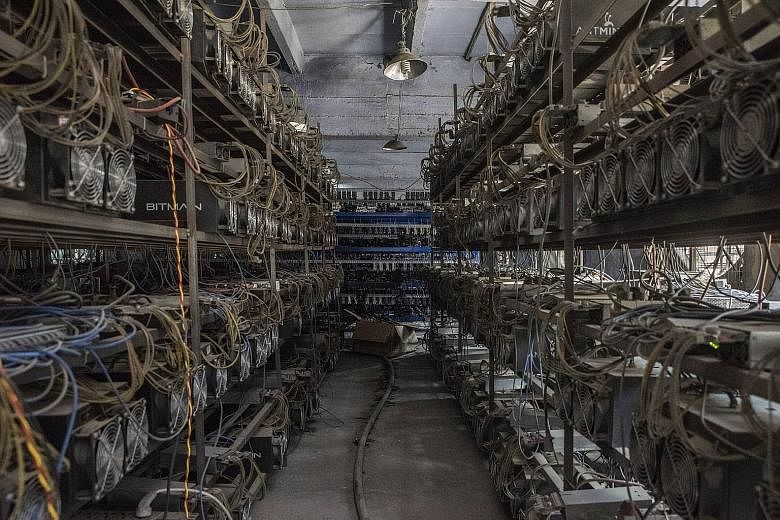NEW YORK • A delegation of American executives flew to Beijing in April for a secret meeting just blocks from Tiananmen Square. They had come to court the new kingmakers in one of the strangest experiments in money the world has seen: the virtual currency known as bitcoin.
Against long odds, and despite an abstruse structure, in which supercomputers "mine" the currency via mathematical formulas, bitcoin has become a multibillion-dollar industry. It has attracted major investments from Silicon Valley and a significant following on Wall Street.
Yet bitcoin, which is both a new kind of digital money and an unusual financial network, is having something of an identity crisis.
Like so many technologies before it, the virtual currency is coming up against the inevitable push and pull between commercial growth and the purity of its original ambitions.
In its early conception, bitcoin was to exist beyond the control of any single government or country. It would be based everywhere and nowhere.
Yet despite the talk of a borderless currency, a handful of Chinese companies have effectively assumed majority control of the bitcoin network. They have done so through canny investments and vast farms of computer servers dispersed around the country.
The US delegation flew to Beijing because that was where much of the bitcoin power was concentrated.
At the time of the meeting, more than 70 per cent of the transactions on the bitcoin network were going through just four Chinese companies, known as bitcoin mining pools - and most flowed through just two of those companies. That gives them what amounts to veto power over any changes to the bitcoin software and technology.
China has become a market for bitcoin unlike anything in the West, fuelling huge investments in server farms as well as enormous speculative trading on Chinese bitcoin exchanges.
Chinese exchanges have accounted for 42 per cent of all bitcoin transactions this year, according to an analysis performed for The New York Times by Chainalysis. Just last week, the Chinese Internet giant Baidu joined three Chinese banks to invest in the US bitcoin company, Circle.
But China's clout is raising worries about bitcoin's independence and decentralisation, which was supposed to give the technology freedom from the sort of government crackdowns and interventions that are commonplace in the Chinese financial world.
"The concentration in a single jurisdiction does not bode well," said Cornell University professor Emin Gun Sirer, a bitcoin researcher. "We need to pay attention to these things if we want decentralisation to be a meaningful thing."
The US delegation in China hoped to expand the capacity of the bitcoin network so that it can process more transactions and compete with the PayPals and Visas of the world. They had a software proposal, known as bitcoin Classic.
The Chinese companies, though, had the ultimate decision-making power over any changes in the software, and they did not agree with the American delegation.
The Chinese had thrown in their lot with another group of programmers who wanted to keep bitcoin smaller, in part to keep it more secure.
Some bitcoin advocates have complained that the Chinese companies have been motivated only by short-term profit, rather than the long-term success and ideals of the project.
Mr Bobby Lee, chief executive of bitcoin company BTCC, which is based in Shanghai, bristled at that - and at the notion that the Chinese companies represent any sort of united front. He attended the April meeting and pointed out that the Chinese companies had disagreed among themselves on how urgent it was to make changes to the bitcoin software.
He said the American companies failed to understand the power dynamics in the room that day. "It was almost like imperialistic Westerners coming to China and telling us what to do," Mr Lee said.
NEW YORK TIMES

